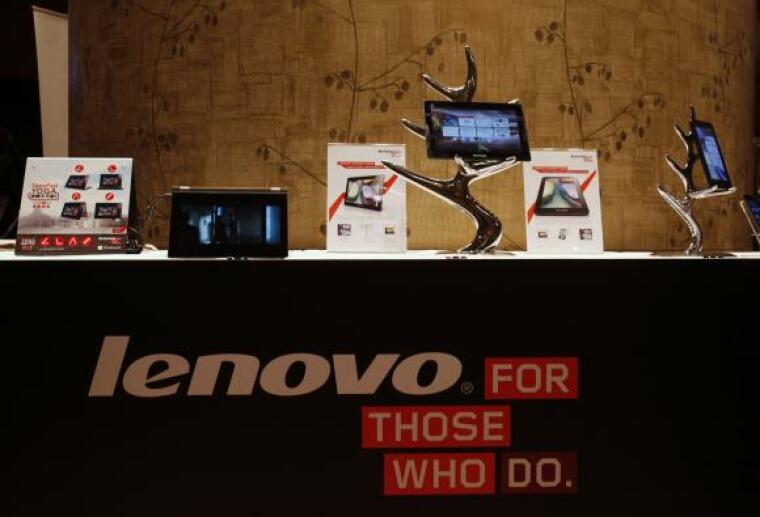Superfish Spy Threat News: Warning for Lenovo Computers After Major Security Flaw Found

Chinese computer manufacturer Lenovo has apologized to consumers after a pre-installed software in its new laptops was found to cause a major security flaw that infects any browser and allows attackers to spy on their users' confidential communication.
The preloaded software, called Superfish, also alters the search results to show users different ads than they would not otherwise see when conducting a search through their browser using a different PC.
The threat posed by Superfish is so severe that the U.S. Department of Homeland Security Computer Emergency Readiness Team has issued an advisory against using Lenovo PCs.
"Lenovo consumer personal computers employing the pre-installed Superfish Visual Discovery software contain a critical vulnerability through a compromised root CA certificate," it said. "Exploitation of this vulnerability could allow a remote attacker to read all encrypted web browser traffic (HTTPS), successfully impersonate (spoof) any website, or perform other attacks on the affected system."
"Attackers are able to see all the communication that's supposed to be confidential -- banking transactions, passwords, emails, instant messages," said Timo Hirvonen, a senior researcher at security software maker F-Secure. With the pre-installed software, a hacker can spy on the users' Internet traffic and infiltrate their computer, he said.
Ironically, the problematic Superfish software has been pre-installed in new laptops produced by Lenovo, which happened to be the top-selling laptop brand in 2014.
Lenovo has admitted its fault and is reportedly scrambling to fix the problem after receiving numerous customer complaints about Superfish.
"We messed up badly," said Peter Hortensius, Lenovo's chief technology officer. He claimed that the company was unaware that Superfish would expose consumer's Internet traffic. "The intent was to supplement the shopping experience," he alleged.
According to Lenovo, Superfish "may have appeared" on the following laptop models: G Series: G410, G510, G710, G40-70, G50-70, G40-30, G50-30, G40-45, G50-45, G40-80; U Series: U330P, U430P, U330Touch, U430Touch, U530Touch; Y Series: Y430P, Y40-70, Y50-70, Y40-80, Y70-70; Z Series: Z40-75, Z50-75, Z40-70, Z50-70, Z70-80; S Series: S310, S410, S40-70, S415, S415Touch, S435, S20-30, S20-30Touch; Flex Series: Flex2 14D, Flex2 15D, Flex2 14, Flex2 15, Flex2 Pro, Flex 10; MIIX Series: MIIX2-8, MIIX2-10, MIIX2-11, MIIX 3 1030; YOGA Series: YOGA2Pro-13, YOGA2-13, YOGA2-11, YOGA3 Pro; and E Series: E10-30.
The company has not disclosed how many computer units were pre-installed with the Superfish software.
Lenovo said it has issued instructions on how users can remove the pre-installed Superfish software on their PCs.
It said it stopped preloading Superfish on its computers last January and "shut down the server connections that enable the software, and we are providing online resources to help users remove this software."
"To be clear: Lenovo never installed this software on any ThinkPad notebooks, nor any desktops, tablets, smartphones or servers; and it is no longer being installed on any Lenovo device," the company said.
In an updated statement, Lenovo has released an automated tool to remove Superfish and its certificate which can be found at http://support.lenovo.com/us/en/product_security/superfish_uninstall.
It said it is now working with McAfee and Microsoft to quarantine and remove the Superfish software.
Lenovo denied that it knew about the vulnerability of Superfish when it pre-installed the software. "However, we did not know about this potential security vulnerability until yesterday," it claimed.
 Christians don't have to affirm transgenderism, but they can’t express that view at work: tribunal
Christians don't have to affirm transgenderism, but they can’t express that view at work: tribunal Archaeology discovery: Medieval Christian prayer beads found on Holy Island
Archaeology discovery: Medieval Christian prayer beads found on Holy Island Presbyterian Church in America votes to leave National Association of Evangelicals
Presbyterian Church in America votes to leave National Association of Evangelicals Over 50 killed in 'vile and satanic' attack at Nigerian church on Pentecost Sunday
Over 50 killed in 'vile and satanic' attack at Nigerian church on Pentecost Sunday Ukrainian Orthodox Church severs ties with Moscow over Patriarch Kirill's support for Putin's war
Ukrainian Orthodox Church severs ties with Moscow over Patriarch Kirill's support for Putin's war Islamic State kills 20 Nigerian Christians as revenge for US airstrike
Islamic State kills 20 Nigerian Christians as revenge for US airstrike Man who served 33 years in prison for murder leads inmates to Christ
Man who served 33 years in prison for murder leads inmates to Christ


 Nigerian student beaten to death, body burned over ‘blasphemous’ WhatsApp message
Nigerian student beaten to death, body burned over ‘blasphemous’ WhatsApp message 'A new low': World reacts after Hong Kong arrests 90-year-old Cardinal Joseph Zen
'A new low': World reacts after Hong Kong arrests 90-year-old Cardinal Joseph Zen Iran sentences Christian man to 10 years in prison for hosting house church worship gathering
Iran sentences Christian man to 10 years in prison for hosting house church worship gathering French Guyana: Pastor shot dead, church set on fire after meeting delegation of Evangelicals
French Guyana: Pastor shot dead, church set on fire after meeting delegation of Evangelicals ‘Talking Jesus’ report finds only 6% of UK adults identify as practicing Christians
‘Talking Jesus’ report finds only 6% of UK adults identify as practicing Christians Mission Eurasia ministry center blown up in Ukraine, hundreds of Bibles destroyed: 'God will provide'
Mission Eurasia ministry center blown up in Ukraine, hundreds of Bibles destroyed: 'God will provide' Church holds service for first time after ISIS desecrated it 8 years ago
Church holds service for first time after ISIS desecrated it 8 years ago Burger King apologizes for 'offensive campaign' using Jesus' words at the Last Supper
Burger King apologizes for 'offensive campaign' using Jesus' words at the Last Supper Uganda: Muslims abduct teacher, burn him inside mosque for praying in Christ’s name
Uganda: Muslims abduct teacher, burn him inside mosque for praying in Christ’s name